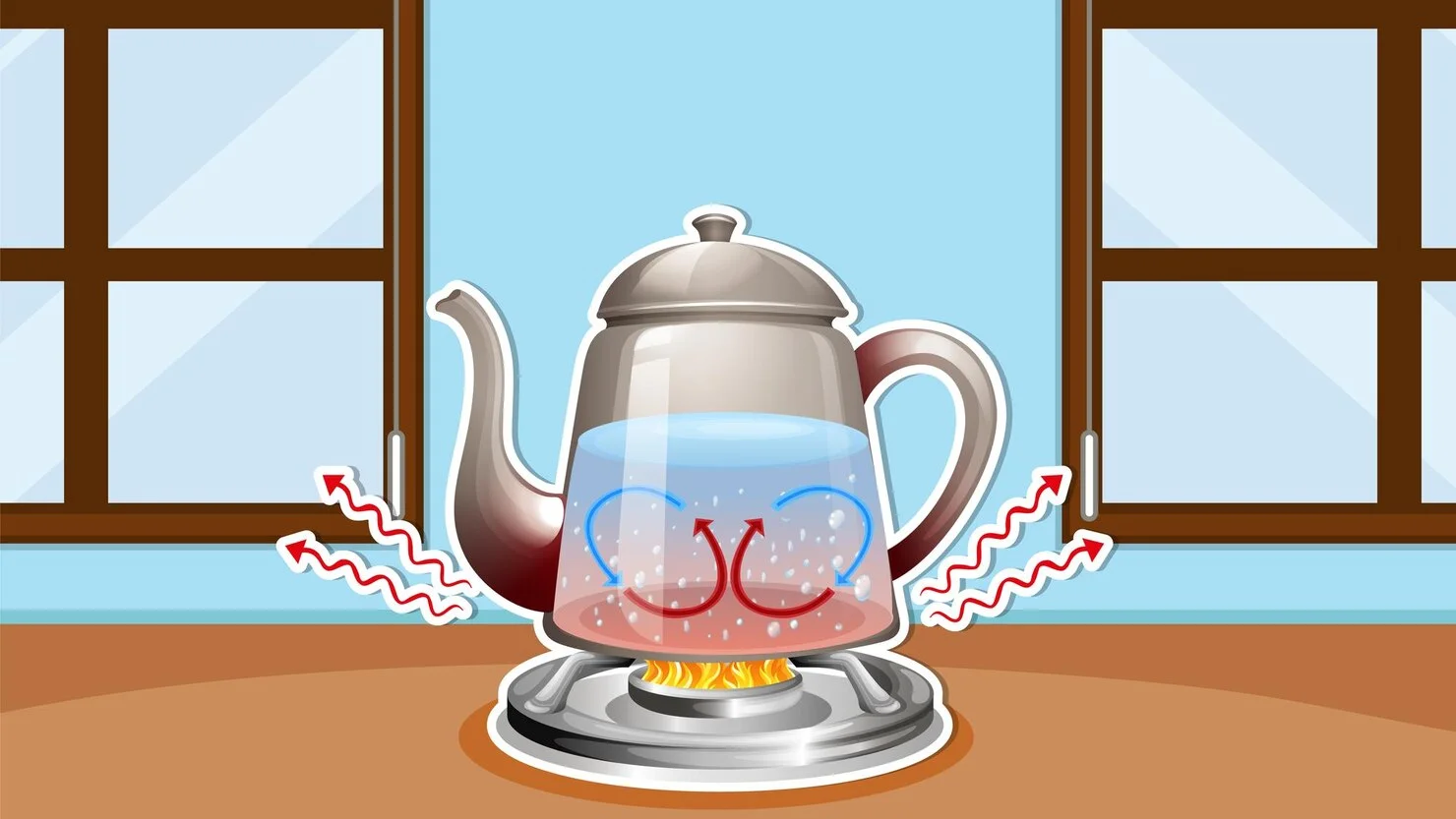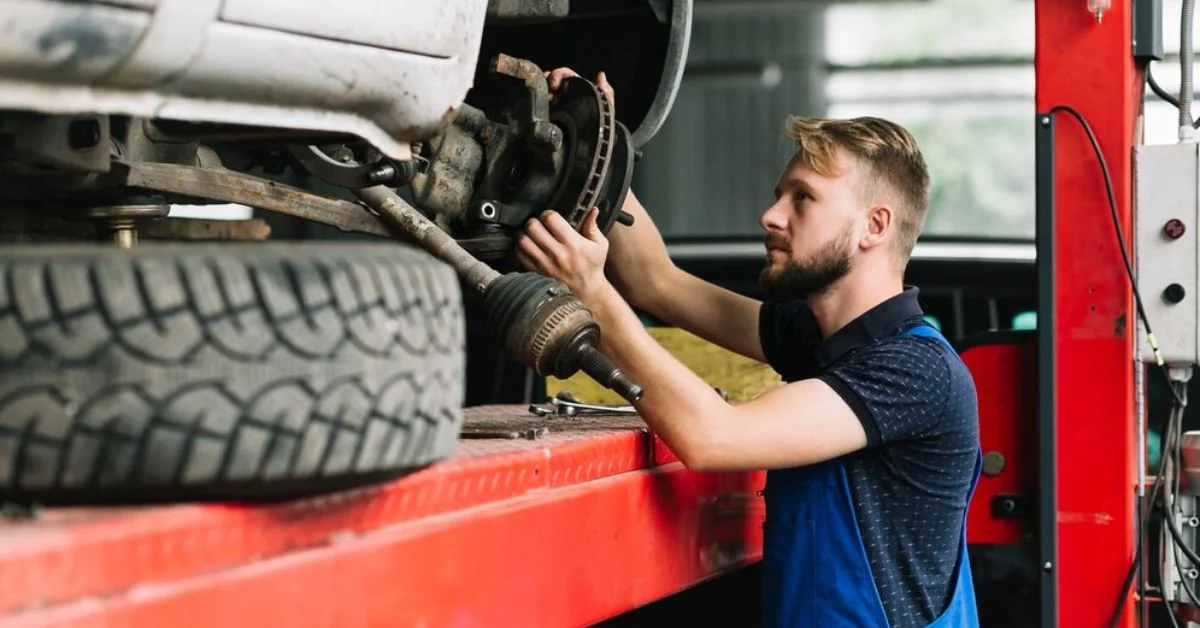GENERAL
Slow Hot Water? Here’s What Could Be Delaying Your Water Heater

Slow hot water delivery is a common problem in households. So what causes it? It can result from poor insulation, defective heating elements, or sediment buildup.
Imagine a situation when you’ve probably noticed that more often than not it takes longer than you’d like for a hot water output to reach your shower or kitchen sink. If your water heater is getting up there in years, it might be having trouble heating the water quickly. Additionally, if your faucets are built to dispense hot water gradually, you’ll experience a slower flow rate. So, let’s dive into what might be causing those delays with your water heater.
Sediment Buildup in the Water Heater
Mineral deposits accumulate in water naturally. So, when you heat the water, the solubility of the minerals drops. The precipitated minerals further collect at the bottom, reducing the efficiency of heating elements. This is what leads to reduced water flow and increased energy consumption.
Water Heater Age
Water heaters can lose efficiency due to sediment buildup, corrosion, poor insulation, or thermostat issues. As they age, they may produce inconsistent water temperatures and unexpected emergencies.
According to a well-known agency, Energy Star, one must consider to replace their water heater if it has reached its 10-year age. It might also vary depending on the materials used and other factors. Energy efficiency savings is greatly affected by this move.
Pipe Distance from Water Heater to Fixtures
Did you know the location of your faucets and showers can delay hot water delivery? The longer the distance water takes to travel through the pipes, the longer it takes for hot water to reach the showers. The length and size of the pipes also matter. A long pipe with a smaller diameter makes water travel longer to reach the facets.
When dealing with issues like long wait times for hot water and water wastage, installing a recirculation pump can make a significant difference. This system helps to eliminate the wait and cuts down on water waste. For the best results, it’s wise to work with an experienced plumbing company. They can offer modern recirculation systems designed for optimal energy efficiency, and their expertise ensures the installation is done right. Collaborating with a pro often leads to a more effective and reliable outcome.
Undersized Water Heater
If your heater is too small for your household, it may not have the capacity to heat the water quickly. Similarly, if you use multiple fixtures, your heater may not provide sufficient hot water. If necessary, you should upgrade to a larger capacity unit to meet your household demands. A large tank will ensure a steady supply of hot water.
Malfunctioning Thermostat or Heating Element
A faulty heating element contributes to slow hot water delivery. It may accurately gauge the water temperature, leading to longer wait times. Likewise, if the heating elements are worn out, you may experience inconsistent temperatures in your shower. So how can you address these issues? You should conduct periodic inspections to ensure you don’t have hot water delivery problems. A professional will perform an accurate diagnosis and handle complex repairs.
Poor Insulation in Pipes
If your pipes are poorly insulated, you’ll experience slow hot water delivery or heat loss (depending on the plumbing layout). This problem can also lead to high energy costs. To achieve better insulation for your water pipes, you should carefully choose your materials. You can use foam pipe sleeves, fiberglass wrap, or an electric heat tape. Another way to reduce heat loss from the tank is to wrap a blanket on the outer surface of the tank.
Conclusion
The potential causes of slow hot water are an aging water heater, faulty thermostat, small water heater capacity, defective heating elements, and mineral deposits. It can also result from placing the heater far from fixtures or poor pipe insulation. For accurate diagnosis, you should reach out to a professional. A licensed technician will ensure the long-term performance of your heating system.
GENERAL
Demystifying Insurance Claims: Debunking 5 Common Misconceptions

Insurance claims can be a tricky maze to navigate, where unique regulations and circumstances come into play. Whether you’re dealing with a car accident, property damage, or personal injury, understanding the nuances of insurance claims is crucial to ensure you get the compensation you deserve. Unfortunately, misinformation often leads to misconceptions that can hinder your ability to receive fair reimbursement. This article will debunk five common misconceptions about insurance claims and shed light on why it’s wise to seek legal counsel from personal injuries attorneys for optimal outcomes.
Misconception #1: “Filing a Claim Means Premiums Will Skyrocket”
One prevalent myth is that filing an insurance claim will inevitably result in skyrocketing premiums. While it’s true that some insurers may raise rates after a claim, especially if you’re deemed at fault for an incident, not all claims lead to increased premiums. Some states have laws that prohibit insurers from raising rates based solely on claims filed for accidents where you were not at fault. Additionally, if you have a history of safe driving or few previous claims, your premiums may remain unaffected.
Misconception #2: “You Can Handle the Claim Process Alone”
Another misconception is that handling insurance claims independently is always the best approach. While it’s possible to navigate simple claims processes solo, more complex situations often benefit from professional assistance. For instance, if you’ve suffered severe injuries in a car accident or your insurance company is disputing your claim, consulting with personal injuries attorneys can provide invaluable guidance. They can advocate for your rights, negotiate with insurance adjusters, and ensure you receive fair compensation for medical bills, lost wages, and pain and suffering.
Misconception #3: “The Insurance Company Is Always on Your Side”
It’s essential to recognize that insurance companies are for-profit entities with their bottom line in mind. While they may advertise themselves as being on your side, their primary goal is to minimize payouts and protect their interests. Consequently, don’t assume that the initial settlement offer provided by your insurer is the best you can get. It’s often a starting point for negotiations, and having a legal professional review the offer can help you determine if it’s fair or if further action is warranted.
Misconception #4: “You Don’t Need Documentation for Your Claim”
Some individuals believe they can simply provide a verbal account of an incident to their insurer without supporting documentation. However, thorough documentation is essential to substantiate your claim and maximize your chances of receiving compensation. This includes gathering evidence such as photos of the accident scene, medical records documenting injuries, repair estimates for damaged property, and any other relevant information. The more evidence you can provide, the stronger your claim will be.
Misconception #5: “If Your Claim Is Denied, That’s the End of It”
Receiving a claim denial can be disheartening, but it doesn’t necessarily mean the end of the road. Many claims are initially denied or undervalued by insurance companies, often due to incomplete information or misinterpretation of policy terms. If your claim is denied, you have the right to appeal the decision and present additional evidence to support your case. In such situations, seeking legal guidance can be instrumental in navigating the appeals process and pursuing the compensation you’re entitled to.
Navigating the intricacies of insurance claims requires more than just a cursory understanding of the process. It demands a keen awareness of the common misconceptions that can hinder your ability to secure fair compensation. By dispelling these myths and embracing the reality that legal assistance may be necessary in certain situations, you empower yourself to advocate for your rights effectively.
GENERAL
5612425780: Safeguarding West Palm Beach Through General Alerts

In today’s fast-paced world, ensuring the safety and security of communities is paramount. One crucial tool in achieving this goal is the implementation of general alerts. In this article, we delve into the significance of general alerts in safeguarding West Palm Beach, with a focus on the role of 5612425780 in this endeavor.
Understanding General Alerts
General alerts are notifications issued to the public to convey important information regarding safety, security, or emergency situations. These alerts serve as a vital communication channel between authorities and the community, enabling timely responses and actions to mitigate risks.
The Role of 5612425780 in Safeguarding West Palm Beach
At the forefront of safeguarding West Palm Beach is 5612425780, a comprehensive alert system designed to keep residents informed and safe. Whether it’s severe weather warnings, traffic advisories, or public safety alerts, 5612425780 ensures that vital information reaches residents promptly.
How 5612425780 Works
5612425780 operates through a multi-channel approach, utilizing text messages, emails, phone calls, and social media platforms to disseminate alerts. Users can customize their preferences to receive alerts specific to their location and interests, ensuring relevant information reaches them when it matters most.
Also Read: UNDERSTANDING THE MYSTERY BEHIND CALLS FROM 02045996870
Benefits of General Alerts
The implementation of general alerts brings forth numerous benefits to the community of West Palm Beach. By keeping residents informed and aware, these alerts facilitate better preparedness and response during emergencies. Additionally, they help minimize risks and enhance overall safety levels.
Key Features of 5612425780
5612425780 boasts several key features that set it apart as a leading general alert system. From its user-friendly interface to its real-time updates and geo-targeted alerts, 5612425780 ensures that residents receive accurate and pertinent information promptly.
Importance of Community Participation
Active participation from the community is crucial in maximizing the effectiveness of general alerts. By staying informed and adhering to safety guidelines outlined in alerts, residents contribute to the overall safety and well-being of their neighborhoods.
Examples of General Alerts
In West Palm Beach, general alerts have proven instrumental in various scenarios, including hurricane warnings, road closures, and public health advisories. These real-life examples underscore the importance of having a robust alert system in place.
Also Read: TRENDZGURUJI.ME CYBER INFO: UNVEILING THE CYBERSECURITY REALM
Ensuring Accessibility
Efforts must be made to ensure that general alerts reach all members of the community, including those with disabilities or language barriers. Utilizing diverse communication channels and providing accessible formats are essential steps in achieving inclusivity.
Challenges and Solutions
Despite the benefits, implementing general alert systems may encounter challenges such as technological limitations or communication barriers. However, through collaborative efforts and innovative solutions, these challenges can be addressed to optimize the effectiveness of alert systems.
Future of General Alerts in West Palm Beach
As technology continues to advance, the future of general alerts in West Palm Beach looks promising. With advancements in artificial intelligence and data analytics, alert systems can become even more precise and proactive in addressing emerging threats.
Case Studies
Examining successful implementations of general alert systems in other cities provides valuable insights for West Palm Beach. By learning from best practices and adapting strategies to local needs, the city can further enhance its alert capabilities.
Feedback and Improvement
Continuous feedback from residents is essential for the improvement of general alert systems. By soliciting input and addressing concerns, authorities can ensure that alert systems remain effective and responsive to community needs.
Conclusion
In conclusion, general alerts play a vital role in safeguarding West Palm Beach by keeping residents informed and prepared. With the implementation of innovative systems like 5612425780, the city can enhance its resilience and responsiveness to various challenges.
Also Read: TYPES OF NETWORK SECURITY PROTOCOLS YOU NEED TO KNOW
FAQs
Q: What types of alerts does 5612425780 provide?
Ans: 5612425780 provides a wide range of alerts, including weather advisories, traffic updates, and public safety notifications.
Q: Can I customize the alerts I receive?
Ans: Yes, users can customize their alert preferences based on their location and interests.
Q: Is 5612425780 accessible to individuals with disabilities?
Ans: Efforts are made to ensure that 5612425780 is accessible to all members of the community, including those with disabilities.
Q: How can I provide feedback on the alert system?
Ans: Residents can provide feedback on 5612425780 through the official website or designated feedback channels.
Q: Are general alerts issued in multiple languages?
Ans: Efforts are made to provide alerts in multiple languages to ensure inclusivity and accessibility.
GENERAL
When to Replace Forklift Tires: A Comprehensive Guide

Forklifts are indispensable tools in many industries, facilitating the movement of heavy goods with ease and efficiency. Central to the safe and efficient operation of these machines are their tires, like the Helmar forklift tires. Quality forklift tires are defined by their durability and reliability, essential attributes that ensure long-term performance and safety. High-quality tires resist wear and tear, maintaining their integrity even under heavy loads and frequent use.
Importance of Quality Forklift Tires
The significance of quality forklift tires cannot be overstated. They are critical in ensuring safety, efficiency, and productivity within warehouses, factories, and distribution centers. These tires are the foundation upon which the entire operation rests, bearing the weight of heavy loads and providing traction on various surfaces. Without reliable tires, the risk of accidents and disruptions to workflow increases significantly.
Moreover, quality tires contribute to lower maintenance costs and reduced downtime, allowing operations to run smoothly and uninterrupted. Investing in high-quality forklift tires is an investment in the overall success and functionality of industrial operations.
Choosing the Right Tires for Your Forklift
Selecting the appropriate tires for your forklift is a decision that should not be taken lightly. Several factors must be considered to ensure optimal performance and longevity. One of the primary considerations is the type of forklift and its intended use. Different forklift models require specific tire types to accommodate load capacities and operational environments.
Additionally, the surface on which the forklift will primarily operate influences tire selection. Smooth, indoor surfaces may necessitate different tires than rough, outdoor terrain. Understanding these factors is crucial in choosing tires that can withstand the demands of the working environment.
Features of Quality Forklift Tires
Quality forklift tires like those of Helmar forklift tires exhibit several key features that differentiate them from inferior alternatives. Durability is paramount, as tires must endure constant use and exposure to heavy loads without premature wear and tear. High-quality materials and superior construction contribute to the longevity of these tires, ensuring consistent performance over time.
Furthermore, reliability is a hallmark of quality forklift tires. They offer dependable traction and stability, allowing for smooth operation and precise maneuverability. This reliability enhances safety in the workplace, reducing the risk of accidents and injuries associated with tire malfunctions or failures.
Signs That It’s Time to Replace Forklift Tires
Despite their durability, forklift tires are not immune to wear and degradation. Recognizing the signs that indicate the need for tire replacement is essential for maintaining workplace safety, efficiency, and productivity.
- Tread Wear: One of the most prominent indicators that forklift tires require replacement is significant tread wear. Worn treads diminish traction and stability, increasing the risk of accidents, especially when carrying heavy loads or operating on uneven surfaces. In addition to compromising safety, worn treads reduce efficiency and productivity in industrial operations. Promptly replacing tires exhibiting extensive tread wear is essential for maintaining optimal performance and mitigating the potential for workplace accidents. Regular inspections and proactive maintenance practices can help identify worn tires before they compromise operational safety and effectiveness.
- Cracks or Cuts: Regular inspection of forklift tires is paramount to identifying potential hazards that compromise operational safety. Among the critical signs of deterioration are cracks or cuts in the rubber, indicative of underlying structural weaknesses. If left unaddressed, these imperfections can escalate into significant safety risks, culminating in sudden tire failures during operation. Such failures not only endanger personnel but also disrupt workflow efficiency. Timely detection and remediation of these issues are imperative to maintaining a secure working environment and optimizing forklift performance. Hence, incorporating routine tire inspections into operational protocols is essential for preempting avoidable accidents and downtime.
- Bulges or Blistering: Bulges or blisters on the sidewalls of forklift tires indicate internal damage or weakness. Continued use of tires with these abnormalities poses a severe safety hazard and should prompt immediate replacement. Such deformities compromise the tire’s structural integrity, increasing the risk of blowouts or sudden failures during operation. In addition to jeopardizing the safety of personnel and equipment, neglected bulges or blisters can escalate maintenance costs and downtime. Timely identification and replacement of affected tires are essential for mitigating these risks and maintaining optimal safety standards in industrial environments.
- Uneven Wear Patterns: Uneven wear patterns across the surface of the tire suggest alignment issues or improper tire inflation. Addressing these issues promptly can prevent further damage to the tires and prolong their lifespan.
Knowing when to replace forklift tires is crucial for maintaining safety, efficiency, and productivity in industrial settings. Quality tires are essential for ensuring the reliable performance of forklifts, offering durability, traction, and stability under demanding conditions. By understanding signs of tire wear and degradation, operators can proactively replace tires before they compromise workplace safety or disrupt operations. Investing in high-quality forklift tires is a prudent decision that pays dividends in performance, longevity, and cost-effectiveness.

 BUSINESS1 year ago
BUSINESS1 year agoExploring the Benefits of Commercial Printing

 HOME IMPROVEMENT12 months ago
HOME IMPROVEMENT12 months agoThe Do’s and Don’ts of Renting Rubbish Bins for Your Next Renovation

 BUSINESS12 months ago
BUSINESS12 months agoBrand Visibility with Imprint Now and Custom Poly Mailers

 HEALTH8 months ago
HEALTH8 months agoThe Surprising Benefits of Weight Loss Peptides You Need to Know

 TECHNOLOGY10 months ago
TECHNOLOGY10 months agoDizipal 608: The Tech Revolution Redefined

 HEALTH7 months ago
HEALTH7 months agoYour Guide to Shedding Pounds in the Digital Age

 HOME IMPROVEMENT8 months ago
HOME IMPROVEMENT8 months agoGet Your Grout to Gleam With These Easy-To-Follow Tips

 HEALTH11 months ago
HEALTH11 months agoHappy Hippo Kratom Reviews: Read Before You Buy!












